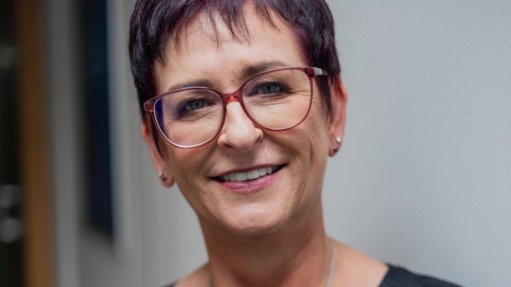South Africa’s ‘single story’
That the rest of Africa sets great store by this country is a no-brainer. After all, Mzansi’s is the most developed economy on the continent and, until the Nigerians tweaked the numbers in a process economists call rebasing and Egypt later also overtook us, we were number one in the gross domestic product stakes too.
This, I guess, is why African leaders turn to South Africa – or South Africans – when major continental assignments need to be undertaken. Recent examples include the appointment of Wamkele Mene as head of the secretariat of the African Continental Free Trade Area and of President Cyril Ramaphosa as head of the Commission on African Covid-19 Response.
But the mayhem in KwaZulu-Natal and Gauteng that followed the jailing of former President Jacob Zuma has the potential to dent this country’s standing, including among its African peers.
Many opinions have been offered as to what set off the regrettable events. The main narrative has been that this was the work of elements bend on causing trouble for government, with words such as ‘insurrection’ and ‘coup’ bandied about. One analyst – a respectable one, I must say – described the mayhem as a case of the proverbial fish that rots from the head, contending that those involved in the looting and rioting, who happened to be residents of townships and other poor neighbourhoods, were simply emulating the looting of State resources by senior government officials that has been exposed at the Zondo Commission of Inquiry into State Capture. A very weak argument, I would say. Why would the rioters and looters choose not to emulate the many men and women of probity who have also testified at the same commission? Mcebisi Jonas, Themba Maseko and many other names come to mind.
While the desperate socioeconomic circumstances of the majority of South Africans has been acknowledged as one of the factors behind the disturbances, this hasn’t been done with much eloquence and largely came through as an afterthought. The emphasis has been on the insurrection narrative.
All this reminds me of ‘The danger of the single story’, an essay by Nigerian novelist Chimamanda Ngozi Adichie in which a ‘single story’ is described as a situation where only one perspective on an issue leads to default assumptions that may be wrong. Adichie uses personal anecdotes to illustrate this notion. One of these was when she started undergraduate studies in the US and her roommate was surprised by her native-speaker proficiency in English and the fact that she listened to the music of artistes such as Mariah Carey instead of “tribal music”.
Citing Palestinian poet Mourid Barghouti, Adichie points out in the essay that those who tell ‘the single story’ about others often start at the point where, ordinarily, one should be saying, “Secondly . . .”
Thus, ‘the single story’ about the rioting and looting starts in 1994, with no connection made between apartheid and the abject poverty that grips most South Africans. While I accept the narrative about insurrection, the rioting and looting would not have assumed the grand scale they did, had it not been for grinding poverty. It was poor people who rioted and looted. Okay, a wealth management firm CEO was arrested for grabbing stuff from shops – transporting the loot in his expensive Range Rover nogal – but he is the exception that proves the rule.
Yes, it has been 27 years since 1994, and government should have made a huge dent into poverty and unemployment. While poor policy choices may have been made, and good policies poorly implemented, the priorities for government have been one too many – healthcare, education, housing, etc. So, the current situation is not solely due to incompetence or corruption. This side of the story needs to be told as well.
Article Enquiry
Email Article
Save Article
Feedback
To advertise email advertising@creamermedia.co.za or click here
Comments
Announcements
What's On
Subscribe to improve your user experience...
Option 1 (equivalent of R125 a month):
Receive a weekly copy of Creamer Media's Engineering News & Mining Weekly magazine
(print copy for those in South Africa and e-magazine for those outside of South Africa)
Receive daily email newsletters
Access to full search results
Access archive of magazine back copies
Access to Projects in Progress
Access to ONE Research Report of your choice in PDF format
Option 2 (equivalent of R375 a month):
All benefits from Option 1
PLUS
Access to Creamer Media's Research Channel Africa for ALL Research Reports, in PDF format, on various industrial and mining sectors
including Electricity; Water; Energy Transition; Hydrogen; Roads, Rail and Ports; Coal; Gold; Platinum; Battery Metals; etc.
Already a subscriber?
Forgotten your password?
Receive weekly copy of Creamer Media's Engineering News & Mining Weekly magazine (print copy for those in South Africa and e-magazine for those outside of South Africa)
➕
Recieve daily email newsletters
➕
Access to full search results
➕
Access archive of magazine back copies
➕
Access to Projects in Progress
➕
Access to ONE Research Report of your choice in PDF format
RESEARCH CHANNEL AFRICA
R4500 (equivalent of R375 a month)
SUBSCRIBEAll benefits from Option 1
➕
Access to Creamer Media's Research Channel Africa for ALL Research Reports on various industrial and mining sectors, in PDF format, including on:
Electricity
➕
Water
➕
Energy Transition
➕
Hydrogen
➕
Roads, Rail and Ports
➕
Coal
➕
Gold
➕
Platinum
➕
Battery Metals
➕
etc.
Receive all benefits from Option 1 or Option 2 delivered to numerous people at your company
➕
Multiple User names and Passwords for simultaneous log-ins
➕
Intranet integration access to all in your organisation

















